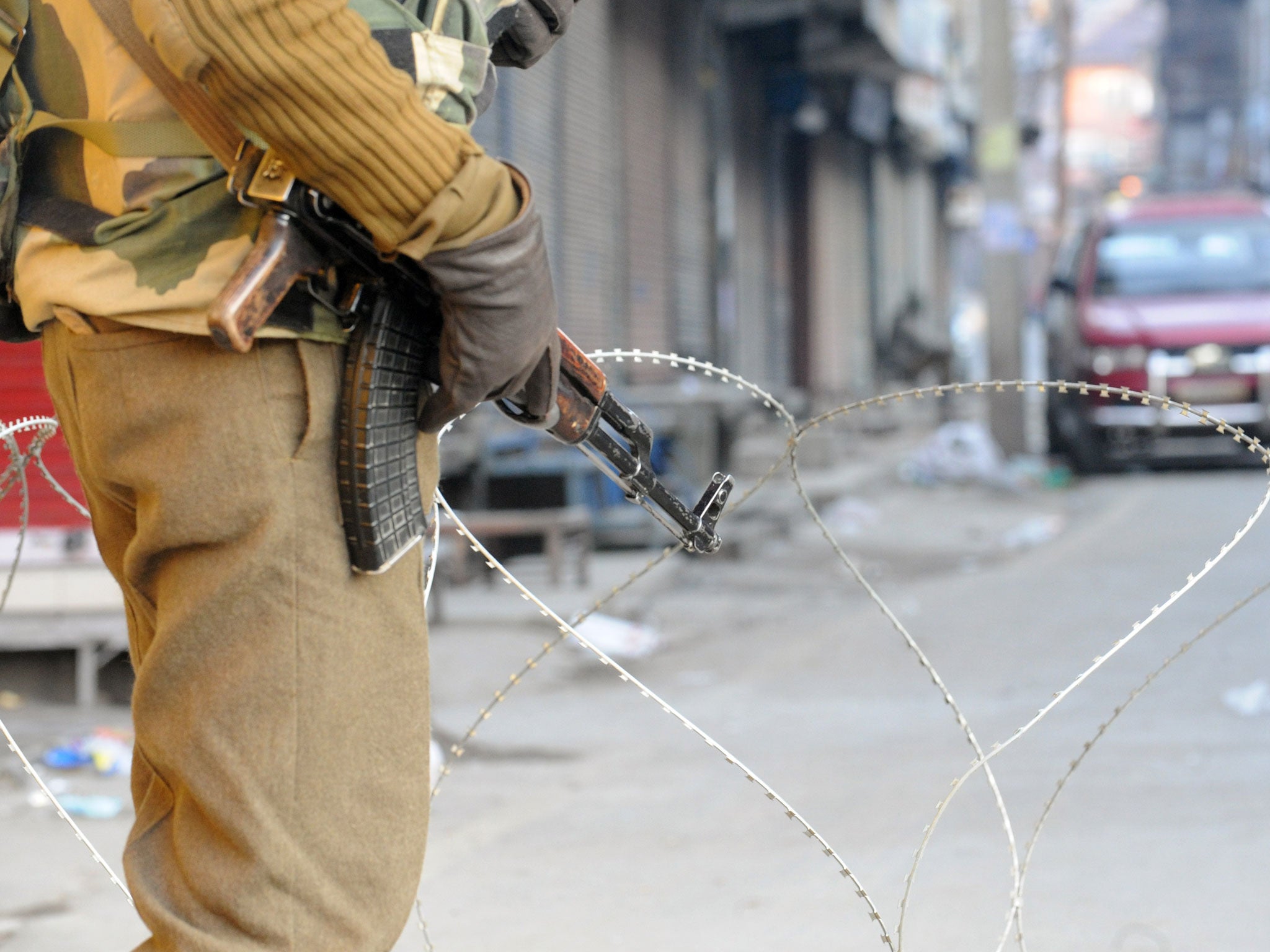Curfew imposed after India hangs Kashmiri man for 2001 attack on Parliament

Your support helps us to tell the story
From reproductive rights to climate change to Big Tech, The Independent is on the ground when the story is developing. Whether it's investigating the financials of Elon Musk's pro-Trump PAC or producing our latest documentary, 'The A Word', which shines a light on the American women fighting for reproductive rights, we know how important it is to parse out the facts from the messaging.
At such a critical moment in US history, we need reporters on the ground. Your donation allows us to keep sending journalists to speak to both sides of the story.
The Independent is trusted by Americans across the entire political spectrum. And unlike many other quality news outlets, we choose not to lock Americans out of our reporting and analysis with paywalls. We believe quality journalism should be available to everyone, paid for by those who can afford it.
Your support makes all the difference.A curfew was thrown over much of Kashmir after the authorities hanged a Kashmiri man convicted of orchestrating a militant attack on India’s parliament more than a decade ago.
In an attempt to minimise protests, the authorities gave no advance warning of their plan to execute Mohammed Afzal Guru and carried out the hanging early on Saturday morning at Delhi’s Tihar jail.
Mr Guru was convicted of the 2001 attack on India’s national parliament that left 14 people dead and which was blamed on Pakistan-based militant groups. In several interviews, he had admitted his involvement in planning the attack but subsequently withdrew the claim, saying he had been tortured into making a confession.
The prisoner had been on death row since he was initially convicted in 2002, but he launched a series of judicial appeals. The last of those were dealt with earlier in the week when India’s president, Pranab Mukherjee, rejected his plea for mercy.
The authorities claimed they had informed Mr Guru’s family of the president’s decision, but relatives said there had been no opportunity granted for his wife to have a final visit. A number of human rights groups raised questions about the manner of the execution as well as the original trial that Mr Guru received.
“Serious questions have been raised about the fairness of Afzal Guru's trial,” Shashikumar Velath of Amnesty International, said in a statement. “He did not receive legal representation of his choice or a lawyer with adequate experience at the trial stage. These concerns were not addressed.”
According to the Associated Press, protests broke out in a number of areas of Kashmir, including Mr Guru’s hometown, Sopore. Demonstrators chanting pro-separatist slogans clashed with police and other security forces, who opened fire and injured at least four people. One of the injured was said to be in a serious condition.
The attack on the national parliament took place against the backdrop of a violent separatist insurgency that had lasted more than a decade and had resulted in massive militarisation of Kashmir by the Indian government. Anywhere up to 70,000 people lost their lives; thousands of Hindus were forced into exile from the Muslim-majority Kashmir valley.
On Saturday a number of leaders associated with the separatist movement were detained, among them Mirwaiz Umar Farooq and hardliner Syed Ali Geelani, who were both was also detained in the Indian capital. The All Parties Hurriyat Conference, an umbrella organisation of separatist political and religious groups, called for four days of mourning to mark the execution.
“We appeal to the people to rise in one voice and protest this aggressive act so that it's known to everyone that even if the heads of Kashmiris are cut, they'll never bow under any circumstances,” the group said in a statement.
The hanging of Mr Guru marked the second such incident in three months in India, following the execution last November of Ajmal Kasab, the sole Pakistani militant involved in the 2008 Mumbai attacks who survived. Prior to that, the last execution took place in 2004 when a security guard, Dhananjoy Chatterjee, was hanged after being convicted of the rape and murder of a schoolgirl in Kolkata.
The Indian government claimed that it had followed all the appropriate procedures before going ahead with the execution. “It was the law taking its course,” RK Singh, the senior civil servant in the home ministry told reporters.
But many will believe there was some sort of political calculation involved in the decision to proceed with the execution of Mr Guru, who was convicted in a trial in which one of the others initially sentence to death was cleared on appeal while the sentence of the second was commuted to imprisonment.
Reports in the Indian media said Mr Guru’s body was buried within the grounds of Tihar jail. His family have demanded it be returned to Kashmir so that religious rite can be performed.
Join our commenting forum
Join thought-provoking conversations, follow other Independent readers and see their replies
Comments